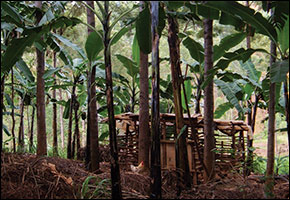The Stream, November 9: Fracking Without Water
A new method of hydraulic fracturing utilizes reusable liquid propane gas instead of water to release underground natural gas deposits, the Sydney Morning Herald reported. The technology, which is being developed in Canada, could have dramatic implications for water use in the burgeoning natural gas industry.
United States
Climate-related natural disasters have incurred $14 billion in health care costs in the United States over the past decade, Tree Hugger reported, citing a study by the Natural Resources Defense Council.
Due to strong opposition in Nebraska, the U.S. State Department is considering rerouting the Keystone XL pipeline, which would carry crude oil from Canada to the gulf states, according to Bloomberg. The pipeline’s current route takes it over Nebraska’s Sandhills region and a large aquifer.
Three years after a large spill in Kingston, Tennessee, the fight over how to regulate toxic coal ash continues, Bloomberg reported.
Europe
The European Union will need to spend €628 ($868) billion on power grid investments this decade and €1.2 ($1.6) trillion in the decade after 2020 to reach its goal of having carbon-free electricity by 2050, according to the European Climate Foundation, Euractiv reported.
The U.K. may change its regulations to allow companies in water-rich areas to sell and divert water to dry regions, the Guardian reported. While the government hopes the policy will alleviate drought stress and allow water suppliers to keep up with demand, conservationists worry about the impacts on energy use and wildlife.
Asia
Thailand’s gross domestic product growth is expected to be below 2.6 percent for 2011, down from 4.4 percent before floods damaged manufacturing and tourism, according to Xinhua.
The Stream is a daily digest spotting global water trends. To get more water news, follow Circle of Blue on Twitter and sign up for our newsletter.
A news correspondent for Circle of Blue based out of Hawaii. She writes The Stream, Circle of Blue’s daily digest of international water news trends. Her interests include food security, ecology and the Great Lakes.
Contact Codi Kozacek






Leave a Reply
Want to join the discussion?Feel free to contribute!